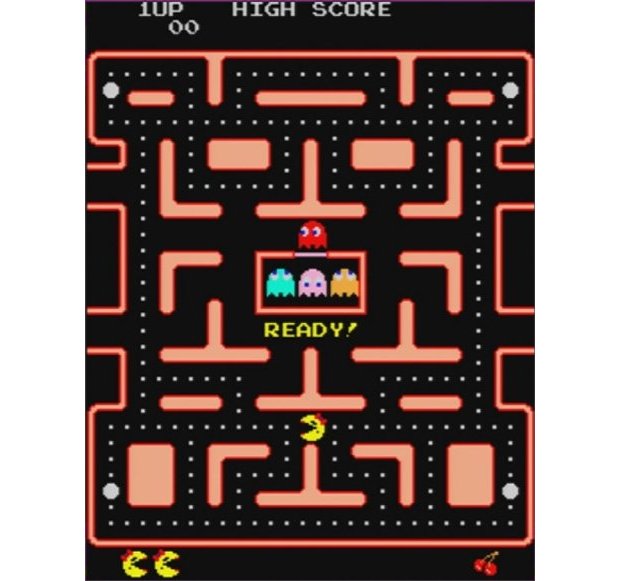Why Ms. Pac-Man is one of the greatest games of all time
Wakka-wakka for life

Today’s billion dollar video game industry makes the original arcade scene look like the Wild West. Way back in the late ’70s and early ’80s, inspiration seemed endless and the industry was filled with developers ready to imitate the next big hit. And it was that unique mix of innovation and imitation ended up being the perfect environment for the birth of one of the most famous--and greatest--games of all time, Ms. Pac-Man.
When the original Pac-Man first hit arcades, it stood out from the many simplistic games that surrounded it. The colorful characters, distinct sound effects, and musical interludes stuck with players long after they saw the Game Over screen, but it was the gameplay that kept pulling them back one quarter at a time. The act of navigating a yellow circle over smaller yellow circles was easy to grasp, but the tension slowly built with each new ghost that was released into the maze.

By a stage’s end, players’ nerves were frayed trying to find ways to dodge four tenacious ghosts in a desperate race for the last pellet. And then there was the sweet-but-brief rush of excitement after picking up a Power Pellet. The ghosts now ran from you, and you could temporarily destroy them with one little chomp. All those qualities make that game unforgettable to this day, but they were merely the foundation of what makes Ms. Pac-Man iconic.
After Pac-Man took arcades by storm, blatant copycats of the compulsive eater quickly crowded the scene. Most of Pac-Man’s imitators were are titles like Lady Bug and Lock 'n Chase. Ms. Pac-Man has been legitimate for so long that it’s hard to believe it started as a similar off-brand recreation. Conceived as Crazy Otto, the developers decided to sidestep any possible legal trouble by taking the game to Midway, Pac-Man’s US distributor. Midway bought it, reskinned the title with a feminine version of the burgeoning mascot, and just like that Ms. Pac-Man continued the wave of Pac-Man pandemonium as a truly evolved sequel.
Sign up to the GamesRadar+ Newsletter
Weekly digests, tales from the communities you love, and more
Henry Gilbert is a former GamesRadar+ Editor, having spent seven years at the site helping to navigate our readers through the PS3 and Xbox 360 generation. Henry is now following another passion of his besides video games, working as the producer and podcast cohost of the popular Talking Simpsons and What a Cartoon podcasts.



